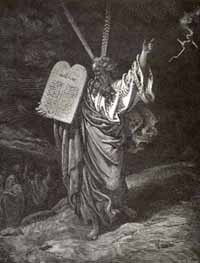
It seems as though the so-called Bishop of Rome has offended the Muslims. He referred to their practice of Jihad (holy war against Jews, Christians, and other 'idolators') as evil. Amongst the dying words of Mohammed, the founder of Islam, were "All Jews and Christians must die".
Does this sound evil to you? Is a hate-filled religion that fosters fear and violence an evil religion? Is a religion that denies that Jesus Christ is the Son of God evil? Is a religion that that has a God who is arbitrary and will damn you on Monday but redeem you on Tuesday evil?
Are the number one outward enemy of Christianity since the middle-ages, who dipped the blood of Christians onto their fez hats...are they evil.
Well, the Pope thought so..until the heathen raged... now he is deeply sorry for the offense.
Here is the text of his apology:Dear Brothers and Sisters,
The pastoral visit which I recently made to Bavaria was a deep spiritual experience, bringing together personal memories linked to places well known to me and pastoral initiatives towards an effective proclamation of the Gospel for today.
I thank God for the interior joy which he made possible, and I am also grateful to all those who worked hard for the success of this Pastoral Visit.
As is the custom, I will speak more of this during next Wednesday's general audience.
At this time, I wish also to add that I am deeply sorry for the reactions in some countries to a few passages of my address at the University of Regensburg, which were considered offensive to the sensibility of Muslims.
These in fact were a quotation from a medieval text, which do not in any way express my personal thought.
Yesterday, the Cardinal Secretary of State published a statement in this regard in which he explained the true meaning of my words.
I hope that this serves to appease hearts and to clarify the true meaning of my address, which in its totality was and is an invitation to frank and sincere dialogue, with great mutual respect. Pope Apologizes to Angered Muslims
 "Your eyes are looking at bread and cup. This is the evidence before your physical sight. But your faith must be instructed concerning it - this bread being Christ 's Body and the cup containing His Blood. Though perhaps these words may be enough to initiate faith, faith must be further instructed in accordance with the Prophet's words:
"Your eyes are looking at bread and cup. This is the evidence before your physical sight. But your faith must be instructed concerning it - this bread being Christ 's Body and the cup containing His Blood. Though perhaps these words may be enough to initiate faith, faith must be further instructed in accordance with the Prophet's words: 










